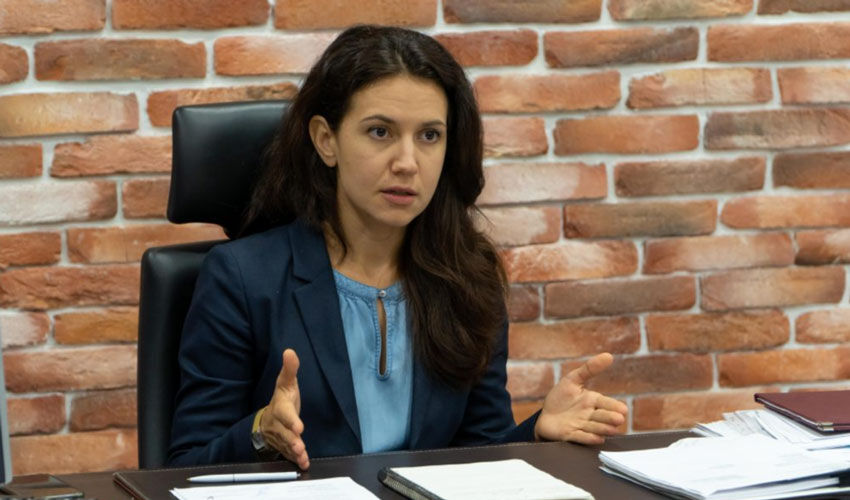
Olesya Stamate
In the original version of Article 7 of the law, such mitigating measures were allowed only under a number of conditions: absence of risk of recidivism; confirmation of this absence by the conclusion of a state forensic psychologist-expert; absence of deliberate grave, especially grave or extremely grave crimes in the past of the convicted person.
The amendments introduced in 2022 changed these conditions. In particular, the term “medium or low risk of reoffending” was introduced. Although Parliament later overturned its own decisions, on Thursday, July 24, the CC finally declared the amendments to the law unconstitutional.
The request to the Constitutional Court was made while Ion Munteanu was still in office as Prosecutor General. Later, he resigned after a decree of the head of state appointing him as a judge of the Supreme Court of Justice.
Deputy Prosecutor General Sergiu Brigai believes that “the replacement of punishment in the case of a convicted person with a risk of recidivism without a real assessment of the public danger may constitute a serious omission in the fulfillment of the state’s duties”.
“Such a measure should be evaluated from the perspective of the principle of proportionality enshrined in the Constitution, as well as taking into account the State’s duty to protect the fundamental rights of others – in particular the right to life and physical integrity guaranteed by the Constitution…and to take effective measures to protect against threats from others,” Brigai said.
Also, the Prosecutor General’s Office does not rule out violations in the process of adopting amendments to Article 7 of the Law on Amnesty. In particular, we are talking about paragraph (2), which, according to the prosecutor’s office, was excluded from the law in violation of parliamentary regulations. As a result, there is a discrepancy between the text voted in Parliament and the text published in the Monitorul Oficial. The annex to the report of the Parliamentary Commission contained a version that only referred to the repeal of paragraph b. However, in the published version, the entire paragraph (2) disappeared. It was the repeal of this part of the law that broadened the scope of persons eligible for amnesty.
“The issue is extremely serious. Although the text with the repeal of only paragraph b was adopted, the Monitorul Oficial published a law repealing the whole paragraph. You work in a state institution that has very serious and important responsibilities for society. Can you imagine a situation in which you are discussing one thing and another thing appears in the document?”,” CC President Domnica Manole asked the prosecutor.
“I believe that such a practice is unacceptable. According to the position of the Prosecutor General’s Office and the information available to us, certain violations were committed in this case. We appealed to the Anti-Corruption Prosecutor’s Office with a request to check these circumstances. Now the competent body should give a legal assessment of what happened,” Brigay said. – There can be only one explanation: to a certain extent, the procedure of adopting the law was falsified. I have no other explanation.
In addition, the amendments implied additional expenses from the state budget, since, according to Article 283 of the Executive Code, released prisoners are entitled to a one-time allowance. “As a result, the repeal of part (2) entails an increase in public expenditures, and such measures can only be taken after coordination with the government,” the prosecutor’s office emphasized.
The decision of the Constitutional Court is an interpretation of legislative norms that have already lost their force. After all, in April of this year, the parliament interpreted the controversial amendments: according to the new wording, convicts whose punishment was reduced or mitigated cannot be released on parole before the expiration of the full term. These (newly effective) norms also apply to those who have already benefited from the amendments. Thus, the intrigue is not in the law itself, but in the further actions of the prosecutor’s office, which can now safely refer to the decision of the Constitutional Court.
Logos Press sent an inquiry to the former chairman of the parliamentary commission on law, appointments and immunity, Olesa Stamata, asking her to comment on the Constitutional Court’s decision.
“An interesting fact – the Constitutional Court, in the same composition, in 2023 made a decision where it indicated that these provisions do not raise issues, and yesterday – ruled the opposite. This is if we talk about the substance of the amendments. If we talk about the procedure, the fact that some of the amendments were made through broader bills, then the CC ruled that the procedure was violated. And in this case, the court will be able to recognize as unconstitutional many laws approved by the current parliament, because many times amendments that only indirectly related to the main bill were adopted by the parliament. The most recent example is the amendments on the protection of journalists. They were introduced on the last day and voted on at the last parliamentary session on July 11 into a bill that had nothing to do with this topic. In fact, it is just an attempt to once again point to “the only guilty party”, although the problem is not the law, or its amendments, but the way the law was applied. But, apparently, no one is interested in this,” Olesia Stamate noted for Logos Press.
Earlier, Olesia Stamate proposed to create a commission to investigate how the amnesty for life prisoners was carried out, and without waiting for a positive reaction from her fellow MPs, she conducted her own investigation “The Truth about Amnesty”.
“The conclusion of the investigation is simple: there is a mechanism, a whole scheme at the level of the penitentiary system. And we are talking not only about the prison in Rezina, where prisoners sentenced to life imprisonment are kept, but also about other institutions. There, the prison commission, together with “selected” lawyers and with the participation of some representatives of the judicial system, knew how to pass through the amnesty procedure convicts who did not fit the criteria established by law. At the same time, those who really deserved amnesty were denied,” said Olesia Stamate in one of her YouTube programs.
We shall remind you that Olesia Stamate left the PAS faction after the scandal with amendments to the amnesty law and focused on an independent political career. At the same time, PAS chairman Igor Grosu said on April 4, 2025 on his official page in the social network that “Olesia Stamate was expelled from the Action and Solidarity party by the decision of the National Permanent Bureau of PAS”.













